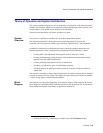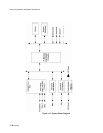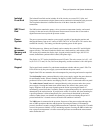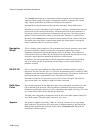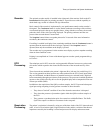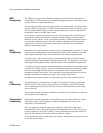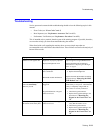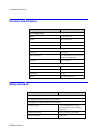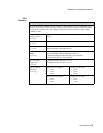
Disassembly
11-12 Training
Whenever the monitor has been opened, there are specific steps regarding reassembly,
described in the disassembly instructions in Chapter 7, that must be followed. If these
instructions are not followed, various errors may result.
For monitors that are defective on arrival, first verify that the problems are not related or
cannot be remedied by following the steps in the above troubleshooting table. If these are not
successful, and a replacement monitor is necessary, contact a Philips Sales Representative to
arrange a replacement.
Disassembly
Disassembly procedures are described in the disassembly guide in Chapter 7. Read the whole
chapter.
Whenever the monitor has been opened, there are specific steps regarding reassembly,
described in the disassembly instructions in Chapter 7, that must be followed. If these
instructions are not followed, errors may result.
If the monitor fails the required performance tests described in Chapter4, then please review
the reassembly.
Audible alarm does not
sound
Speaker malfunction or speaker
has a loose connector.
Main PCB module malfunction.
1. Check speaker connector.
2. Replace speaker according to the
instructions in
“Replacing the
Speaker” on 7-9
.
Replace the Main PCB module according
to the instructions in
“Removing the
Main PCB Module” on 7-12
.
No sound from monitor Tone is switched off or low. 1. Turn the volume up by pressing the
Volume button.
2. Power-cycle monitor. Tone should
sound when monitor boots up.
3. Check cable connections to the
speaker.
No tone alarms
Speaker will not work
Audible alarms are not switched
on.
Cable disconnected.
Defective speaker.
Make sure audible alarms are switched on.
Reconnect cable.
Replace speaker.
The wheel is rotated, no
highlight appears on the
display screen, and/or the
monitor does not respond to
wheel presses.
Main PCB module malfunction. Replace the Main PCB module according
to the instructions in
“Removing the
Main PCB Module” on 7-12
.




